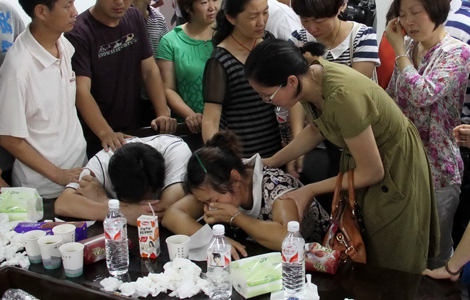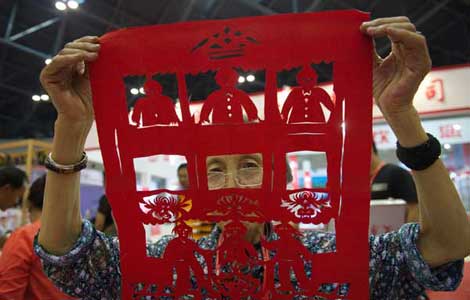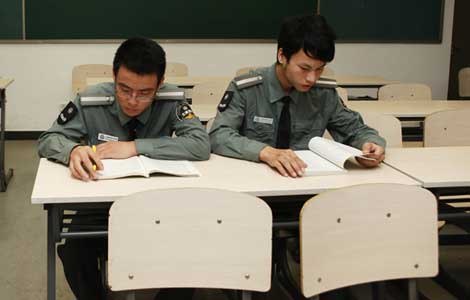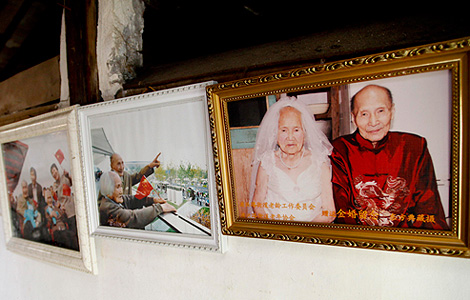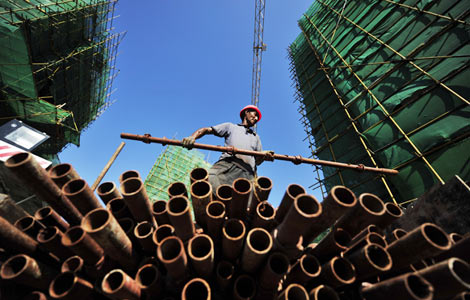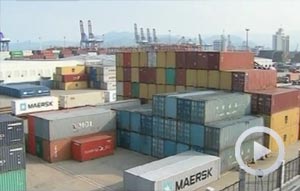A softer attitude to slower growth
Updated: 2013-07-08 07:42
(China Daily)
|
||||||||
While initially there were some doubts about whether the rise in the interbank rate early last month was a temporary pre-holiday (Dragon Boat Festival) phenomenon, the fact that the interbank rate had already started to rise meaningfully in mid-May and stayed at an elevated level for several days following the holiday suggests that this rise was not simply a pre-holiday liquidity squeeze.
It can be argued that the central bank did not actively drive up the level of the interbank rate, and that it was driven by a much lower level of foreign exchange inflows and more net fiscal withdrawals.
However, the fact that the central bank monitors these changes and that it took no action even though the interbank rate changed in real time says something about its stance. Moreover, a number of tighter regulations have been introduced in the financial system to control systemic risks: there have been tighter controls on interbank business activities and closer scrutiny of fixed-income trading, including the arrest of a number of traders for illegal activities. All these suggest an orchestrated attempt to fix the holes in the financial system to make its development more sustainable, possibly at the expense of short-term growth.
One issue closely related to the above discussion is the communication of policy thinking. While Western observers may assume it is a universal rule that policymakers should try to guide market expectations by communicating their thinking to market participants, this is still not always the case in China.
This could in part be because of the difference in the way policymakers view the issue conceptually and in part because of the practical difficulties in making the reasons for decisions explicit.
The loosening we saw in the third quarter last year, for example, was much more low-profile, in terms of the policy tone given the level of policy actions, than the 4 trillion yuan ($653 billion) package, probably because of the political transition and some criticism of the 4 trillion yuan package. Whether we believe these criticisms to be justified is a separate issue.
The tightening bias may be much more sustainable than what is expected by the market.
Unlike a tightening driven by concerns over inflation, a tightening motivated by risk control may prove to be more sustainable, as control of the leverage ratio needs to be, almost by definition, a continuous process. At the risk of being simplistic, over the previous two decades, economic policy making could be divided into the period under the then premier Zhu Rongji (1992-2002) and that under former premier Wen Jiabao (2003-2012).
The decade under Zhu had a strong focus on fundamental reforms, including entry into the World Trade Organization, the bankruptcy of SOEs and the substantial restructuring of the government.
In the decade under Wen there was a much more limited number of fundamental reforms, and the policy focus was more on the cyclical management of the economy to prevent it entering a sustained period of deviation from trend growth. While it is not always necessary to choose either reform or cyclical management as the primary focus at the expense of one or the other, in practice there is often a bias, and sometimes specific short-term and long-term goals do conflict with one another.
For example, loosening driven by fixed-asset investment is viewed as both necessary and effective from a cyclical management point of view but it tends to make air pollution worse as it tends to be more closely linked to heavy industrial production.
From the relatively limited amount of information available, the decade under President Xi Jinping and Premier Li Keqiang may fall somewhere between the previous two decades, with less focus on cyclical management than in the past decade but more than in the decade before that, and more fundamental reforms than in the past decade but less than in the decade before that (ideally, we would like to see more fundamental reforms, but realistically the reform process is likely to be challenging given the political and social structure).
Most Viewed
Editor's Picks

|

|

|

|

|

|
Today's Top News
Boeing 777 passenger 'mumbled a prayer'
Ex-minister gets suspended death
Workers return after dispute
Job seekers should be cautious abroad
River pollution sparks criticism
Terror attack was planned: suspect
Booming security industry needs skilled youth
A bright future for native black pigs?
US Weekly

|

|
